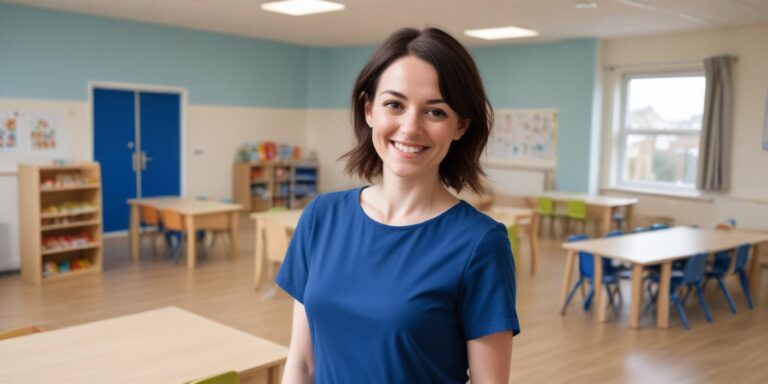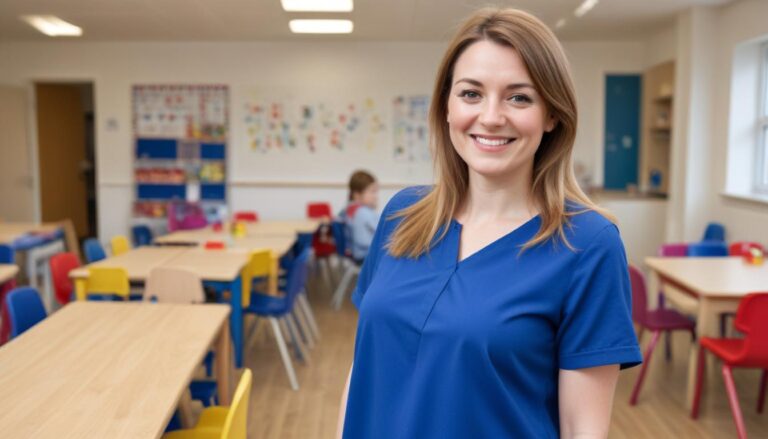
Summary
- Confidentiality is vital in early years settings to protect sensitive information about children and their families, fostering trust and open communication.
- Legal frameworks like the Data Protection Act 2018 and GDPR dictate how personal data should be managed, ensuring it is collected, stored, and shared responsibly.
- Building trust with families encourages collaboration, allowing parents to share their child’s needs without fear, which enhances the care and learning experience.
- Practical steps for maintaining confidentiality include secure storage, access control, anonymisation of data, and obtaining consent before sharing information with external professionals.
This guide will help you answer 3.3 Evaluate the requirement for confidentiality during the observation process.
Confidentiality is essential in early years settings. Observations often include sensitive information about children and their families. This information should remain private. It encourages trust between parents, children, and early years practitioners. Knowing their personal data is safe helps families feel more comfortable engaging with the setting.
A breach of confidentiality can impact relationships. Parents may become wary of sharing information, which affects the quality of care. Maintaining confidentiality promotes an environment where open communication thrives.
Legal Frameworks
The Data Protection Act 2018 and the General Data Protection Regulation (GDPR) guide confidentiality. These laws dictate how personal data should be handled. Personal data includes names, addresses, and observations about a child’s development.
Under these laws, you must collect data lawfully and use it fairly. It’s crucial to keep data accurate and up-to-date. You must also store it safely and not keep it longer than necessary. Practitioners should follow these legal requirements to avoid repercussions and protect the children’s rights.
Building Trust with Families
Confidentiality builds trust. Parents need reassurance that observations are kept private. This trust allows parents to share information about their child’s needs without fear. When parents trust you, they are more likely to collaborate with staff. This partnership benefits the child’s care and learning experience.
Trust benefits more than relationships. It encourages shared responsibility between parents and practitioners. This cooperation leads to better understanding and support for the child’s development.
Professional Reputation
Maintaining confidentiality upholds the professional standards of a setting. It shows the setting values privacy and respects families. Upholding these values enhances the reputation of the setting.
A setting with a strong reputation for confidentiality attracts families. They feel safer placing their children in an environment that respects their privacy. A high standard of confidentiality fosters a professional image and shows the setting’s commitment to ethical practice.
Safeguarding Children
Confidentiality is tied to safeguarding. Observations might reveal concerns about a child’s welfare. Practitioners must handle such information carefully. Share it only with relevant individuals or authorities. This responsible approach protects the child while ensuring necessary actions are taken.
Staff are trained in safeguarding procedures. This training helps them recognise when to share information for a child’s safety. Sharing information responsibly ensures appropriate interventions while maintaining confidentiality.
Practical Steps for Confidentiality
Implementing practical steps ensures confidentiality is maintained:
- Secure Storage: Keep observation records in locked cabinets or encrypted digital files.
- Access Control: Limit access to records to authorised personnel only.
- Anonymisation: Use initials or codes instead of full names in informal observations.
- Consent: Obtain parental consent before sharing observations with external professionals, like speech therapists.
Discuss confidentiality policies with all staff members. Regular training sessions keep everyone informed about new regulations and best practices.
Handling Breaches
Despite best efforts, breaches can happen. Rapidly addressing them is important. Follow your organisational procedure, which typically includes:
- Immediate Action: Secure data to prevent further access or loss.
- Reporting: Inform your supervisor and relevant authorities about the breach.
- Review Systems: Identify how the breach occurred and implement measures to prevent recurrence.
Handling a breach transparently helps repair trust and improves future practices.
Final Thoughts
Confidentiality during observations is fundamental. It protects children’s privacy, upholds legal standards, and fosters trust with families. Practitioners must handle data responsibly and follow legal frameworks to maintain professional integrity. With clear policies and practices, settings can safeguard sensitive information, ensuring a secure environment for children and families.
Glossary and Key Terms
- Confidentiality
Keeping sensitive information private to protect individuals’ rights and build trust. - Observation
The act of watching and recording children’s behaviour and development in a structured manner. - Data Protection Act 2018
A UK law that governs how personal information is collected, used, and stored. - General Data Protection Regulation (GDPR)
An EU regulation that sets guidelines for the collection and processing of personal data. - Personal Data
Information that relates to an identifiable individual, such as names and addresses. - Anonymisation
The process of removing personal identifiers from data to protect individuals’ identities. - Consent
Permission granted by parents or guardians before sharing information about their child. - Safeguarding
Measures taken to protect children from harm and ensure their well-being. - Breach of Confidentiality
An incident where private information is disclosed without permission, risking trust and safety. - Access Control
Procedures that limit who can view or handle sensitive information within an organisation.
Subscribe to Newsletter
Get the latest news and updates from Care Learning and be first to know about our free courses when they launch.



